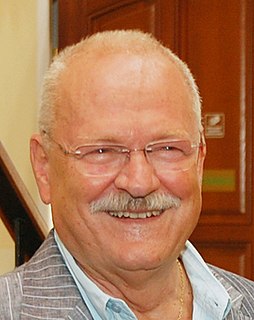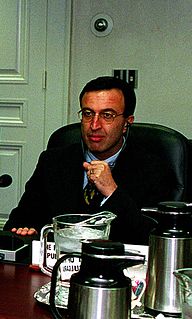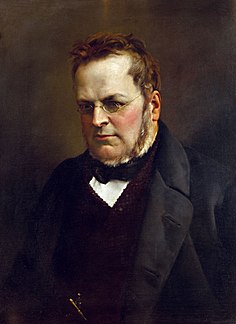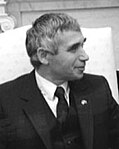
Presidential elections were held in Croatia in January 2000, the third since independence in 1991. They were also the first early presidential elections, as they were held due to the death of incumbent president Franjo Tuđman on 10 December 1999, as well as being the last elections held under the semi-presidential system of government, by which the President was the most powerful official in the government structure and could appoint and dismiss the Prime Minister and their cabinet.

Presidential elections were held in Slovakia on 3 April 2004, with a second round on 17 April. Although former Prime Minister Vladimír Mečiar received the most votes in the first round, he was defeated by Ivan Gašparovič in the run-off.

Bulgaria elects on national level a head of state - the president - and a legislature. The president is elected for a five-year term directly by the people. The National Assembly has 240 members, elected for a four-year term by proportional representation in multi-seat constituencies with a 4% threshold. Bulgaria has a multi-party system, in which no one party often has a chance of gaining power alone, and parties must work with each to form governments.
The Democratic Party is a center-right party in Bulgaria led by Alexander Pramatarski. The party is a member of the European People's Party (EPP).

Presidential elections were held in Bulgaria on 22 October 2006, as decided on 27 July 2006 by the Bulgarian Parliament. The runoff took place on 29 October 2006, while the electoral campaign spanned 19 September–20 October. At the election, Georgi Parvanov won his second and final term as President of Bulgaria.

Presidential elections were held in Bulgaria on 11 November 2001, with a second round on 18 November. The result was a victory for Georgi Parvanov of the Bulgarian Socialist Party, who won 54.0% of the vote in the second round. Voter turnout was 41.8% in the first round and 55.1% in the second.

Presidential elections were held in Moldova on 17 November 1996, with a second round on 1 December. Whilst incumbent President Mircea Snegur received the most votes in the first round, he was defeated in the second by Petru Lucinschi.
Constitutional Assembly elections were held in Bulgaria on 10 June 1990, with a second round for eighteen seats on 17 June. They were the first elections held since the fall of Communism the previous winter, and the first free national elections since 1931. The elections were held to elect the 7th Grand National Assembly, tasked with adopting a new (democratic) constitution. The new electoral system was changed from 400 single-member constituencies used during the Communist era to a split system whereby half were elected in single member constituencies and half by proportional representation. The result was a victory for the Bulgarian Socialist Party, the freshly renamed Communist Party, which won 211 of the 400 seats. Voter turnout was 90.3%.
Parliamentary elections were held in Bulgaria on 18 December 1994. The Democratic Left, the core of which was the Bulgarian Socialist Party, won 125 of the 240 seats, enough to govern without the support of parties from outside the coalition. Voter turnout was 75.3%. Following the election, Socialist Party leader Zhan Videnov became Prime Minister.

Parliamentary elections were held in Bulgaria on 18 November 1945, the country's first to feature universal suffrage for women. The Bulgarian Agrarian National Union and the Bulgarian Communist Party both won 94 seats. Voter turnout was 84.8%.

Parliamentary elections were held in Bulgaria between 6 and 27 March 1938, the first after the 1934 coup. The elections were held on a non-partisan basis, with the Bulgarian Agrarian National Union and Bulgarian Communist Party banned. Pro-government candidates won a majority of seats. Voter turnout was 69.5%.

Parliamentary elections were held in Bulgaria on 24 December 1939, although voting continued in some areas into January 1940. The elections were officially held on a non-partisan basis with the Bulgarian Agrarian National Union and Bulgarian Communist Party banned, and in a process tightly controlled by Tsar Boris III, by then the real power in the country. However, candidates representing parties did contest the elections. Pro-government candidates won a majority of seats. Voter turnout was 67.2%.

Presidential elections were held in Bulgaria on 27 October 1996, with a second round on 3 November. The result was a victory for Petar Stoyanov of the United Democratic Forces, who won 59.7% of the vote in the second round. Voter turnout was 63.3% in the first round and 61.8% in the second.

General elections were held in Italy on 27 January 1861, with a second round on 3 February. The newly elected Parliament first convened in Turin on 4 March 1861, where, thirteen days later, it declared the unification of the country as the Kingdom of Italy.

Presidential elections were held in Slovenia on 8 April 1990, with a second round on 22 April. Voters elected the four members of the presidency and the President of the presidency. Ciril Zlobec, Ivan Oman, Matjaž Kmecl and Dušan Plut were elected to the presidency, whilst Milan Kučan was elected President in the second round.

General elections were held in Macedonia on 16 October 1994 to elect a President and Assembly, with a second round of Assembly elections on 30 October. The presidential election was won by Kiro Gligorov of the Alliance for Macedonia, whilst the parties forming Alliance for Macedonia also won the Assembly elections with 95 of the 120 seats. However, the second round of the Assembly elections were boycotted by VMRO-DPMNE and the Democratic Party, as they claimed there had been irregularities in the first round.

Parliamentary elections were held in the Socialist Republic of Macedonia on 11 November 1990, with a second round on 25 November. They were the first competitive elections in the country's history. VMRO-DPMNE emerged as the largest party, winning 38 of the 120 seats.

The United Labour Social Democratic Party was a political party in Bulgaria.

Federal elections were held in Switzerland on 27 October 1872. The Radical Left remained the largest group in the National Council.













